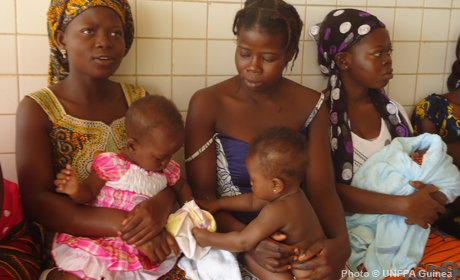Key humanitarian results 2018

Total people reached with Adolescent SRH

People reached with Dignity Kits

Affected population who directly benefited from all types of emergency RH kits

Women assisted to deliver babies safely in UNFPA-supported facilities

Women and girls accessing services provided through Service Delivery Points (SDPs) that are equipped with Post-Rape Kits

GBV survivors reached

Affected population reached with Family Planning services

Nombre de cliniques mobiles

Functional health facilities supported by UNFPA that provide Emergency Obstetric Care (EmOC)

Dignity kits and/or other Non-Food Items distributed

Maternity health facilities/tents/homes operationalized with UNFPA support

Safe Spaces for women and girls, supported by UNFPA

Nombre de points de prestation de services assurant la gestion clinique du viol

Jeunes animateurs et bénévoles formés à la santé sexuelle et reproductive

Personnel trained on the Minimum Initial Service Package (MISP) for SRH

Has established a functional system for safe and ethical gender-based incident data management

